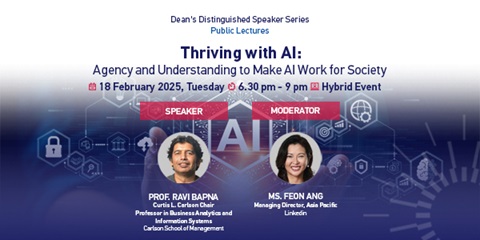University students need to pick up the reading habit they had in primary school
Reading more to expand knowledge, skills and cultural experiences will put them in good stead in their careers.
As a professor at Nanyang Technological University (NTU), I teach in one of the most research-intensive universities in Asia. We have outstanding library facilities. Our libraries have more than a million print books on their shelves. Within our sprawling campus, we have seven libraries.
Singapore itself has some of the most amazing libraries I have seen. In 2019, the number of books public library users are allowed to borrow was even doubled to 32.
Singapore is also a nation that prides itself on having an extremely high literacy rate. According to a recent study, the country's Primary 4 pupils emerged as the top readers in the world.
It is always a surprise then that every year during admission interviews when I ask students, "What is the last book you read and what was it about?", the question generally draws a blank.
I like to ask this question because students do not expect it. There are tonnes of resources online to help them prepare for interview questions. But, in this case, they cannot rely on a rehearsed answer.
The question also betrays my confusion: Despite Singapore's abundance of accessible libraries and its high literacy rate, most of my students, by the time they get to university, have not engaged in book reading for a long time.
Something happens to them before university. While many avidly read books during their primary school years, they progressively drop the reading habit in secondary school.
This is consistent with the results of a study by the National Institute of Education and NTU on the reading habits of Singapore teenagers in 2021. Some 6,690 students from six government secondary schools were asked about their reading practices.
One Secondary 3 student in the study said: "I remember I used to love reading books when I was younger. I have loads of story books. As I got older, I had a lot of schoolwork and I just stopped reading."
Students in secondary school tend to be bombarded with schoolwork and exams, and have little time to read for leisure or pleasure.
Furthermore, while there is a growing trend of primary school children owning phones, this trend is even more pronounced among secondary school students.
Another Secondary 3 student in the study said: "Honestly... in primary school, I didn't have a phone, so I read because I wanted to kill time... Now, I mostly use my phone to do that."
There is evidence that this trend of no longer reading books in secondary school is intensified in junior college (JC), where the emphasis is mostly on achieving grades for entry into university.
A colleague told me about her experience: "I stopped reading books one month after entering JC. There was a very brief period when I picked up books again in my second year, when the Twilight series was popular. I read all the books within a week. Then I got reminded of the reality that it was not a productive use of my time, and that I should be studying."
The students I teach have gone through 15 years of gruelling tests, tuition and homework. Yet I always feel a sense of disappointment when they struggle to remember books they have read. Any book.
There are two things students may miss out on if they do not read books: the ability to develop and sustain attention; and the ability to acquire the cultural capital they need for a successful career.
I have a teenage son who loves going to the gym. I love the fact that it gets him out of the house and away from screens.
What I tell him, though, is that there is an invisible muscle we should all work on: attention.
Maintaining focus is bound to become increasingly critical for knowledge workers who rely on high levels of concentration when analysing complex financial data or developing innovative business strategies.
But we are constantly distracted. The temptation to multitask undermines our ability to focus. This is especially worrying given the growing evidence that multitasking leads to more stress and less satisfaction in our lives.
In contrast, reading a book requires sustained concentration, allowing us to exercise our attention muscles. Invisible ceiling of cultural capital
Then there is the issue of cultural capital. French sociologist Pierre Bourdieu defined cultural capital as the knowledge, skills and cultural experiences a person possesses. It includes a person's education, language skills and familiarity with art, music and literature.
Many of my students come from less-privileged backgrounds and are recipients of bursaries and support from the Government. They have worked hard under difficult circumstances to gain acceptance into the university.
Yet, they often fail to see the importance that social class will continue to have in their lives.
In their book The Class Ceiling: Why It Pays To Be Privileged, sociologists Sam Friedman and Daniel Laurison explore the concept of the "class ceiling", which refers to the barriers that prevent the social advancement of individuals from lower social classes.
The book shows data on how people in elite jobs from working-class backgrounds in Britain earn £6,400 (S$10,700) less a year than colleagues from privileged backgrounds doing the same job. The authors emphasise the importance of cultural capital in understanding this phenomenon.
What my students overlook is that in numerous professional domains, having cultural capital confers a distinct edge. Professor Friedman and Associate Professor Laurison cite examples from fields such as accounting or law, where understanding highbrow cultural references helps individuals from higher social classes fit in with elite circles.
By their lack of reading, my students have relinquished a crucial avenue for acquiring cultural capital.
Some may argue that in this highly connected, information-saturated world, there are other ways to acquire cultural capital - podcasts, YouTube videos or audiobooks could be seen as good ways to acquire knowledge.
Unlike audiobooks or YouTube videos, however, reading a text requires a unique level of engagement that promotes deeper attention. Reading requires mental effort to understand and interpret the written word. It asks the reader to think critically, analyse the text, and make connections between ideas.
In reading books, the focus needed is a perfect antidote to what American writer Nicholas Carr calls "the shallows", a world dominated by the Internet, where we have lost our capacity for contemplation and reflection.
With books, the whole world opens up to the reader, providing a gateway to diverse cultures, traditions and viewpoints. Books have the power to nurture empathy, cultivate cultural sensitivity, and enable the reader to develop a more expansive outlook on life. These qualities are especially important in a country like Singapore, where the economy is so dependent on trade and exchange with other nations.
My colleagues who have made book reading a more central part of their curriculum said that although students found reading a whole book a difficult task, many felt it was also a rewarding and, for some, even an enjoyable experience.
Most of the business students I have taught over the past two decades would have benefited from a university education that integrated more books in their courses.
Today, many business schools give students mandatory courses on sustainability or ethics. But without a deeper understanding of philosophy or history, an understanding of ethics or our relationship with nature is bound to be limited.
We need more cross-fertilisation between fields of study - scientists who understand history, and historians who know the principles of science. For this cross-fertilisation of knowledge to happen, books need to be a more central part of tertiary education.
Singapore has one of the most amazing library systems in the world. I hope my students go back to the library and rediscover the joy they once had for reading.
When I interview students for admission to the university next year, I hope to have better answers to my question and conversations about books.
Julien Cayla is an associate professor at Nanyang Business School, Nanyang Technological University.Source: The Straits Times




.tmb-listing.jpg?Culture=en&sfvrsn=8b2cb369_1)


